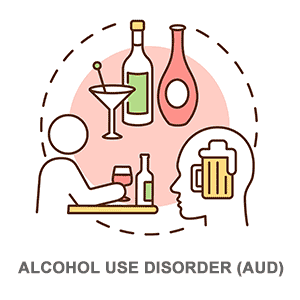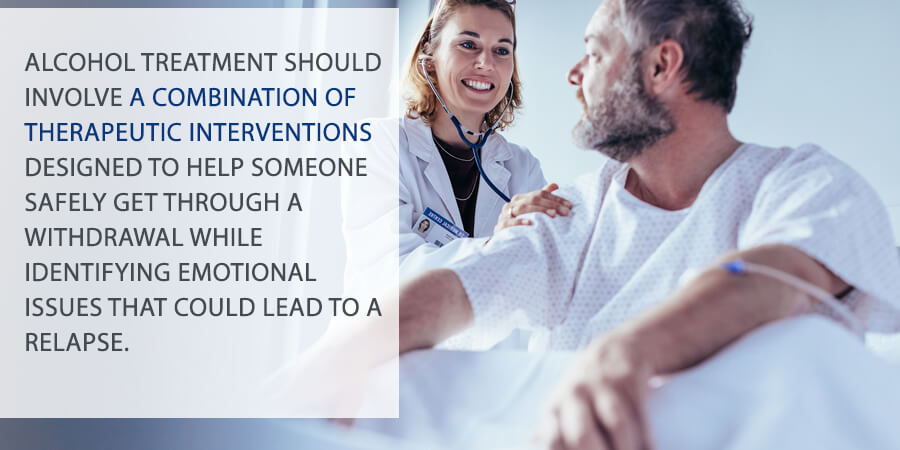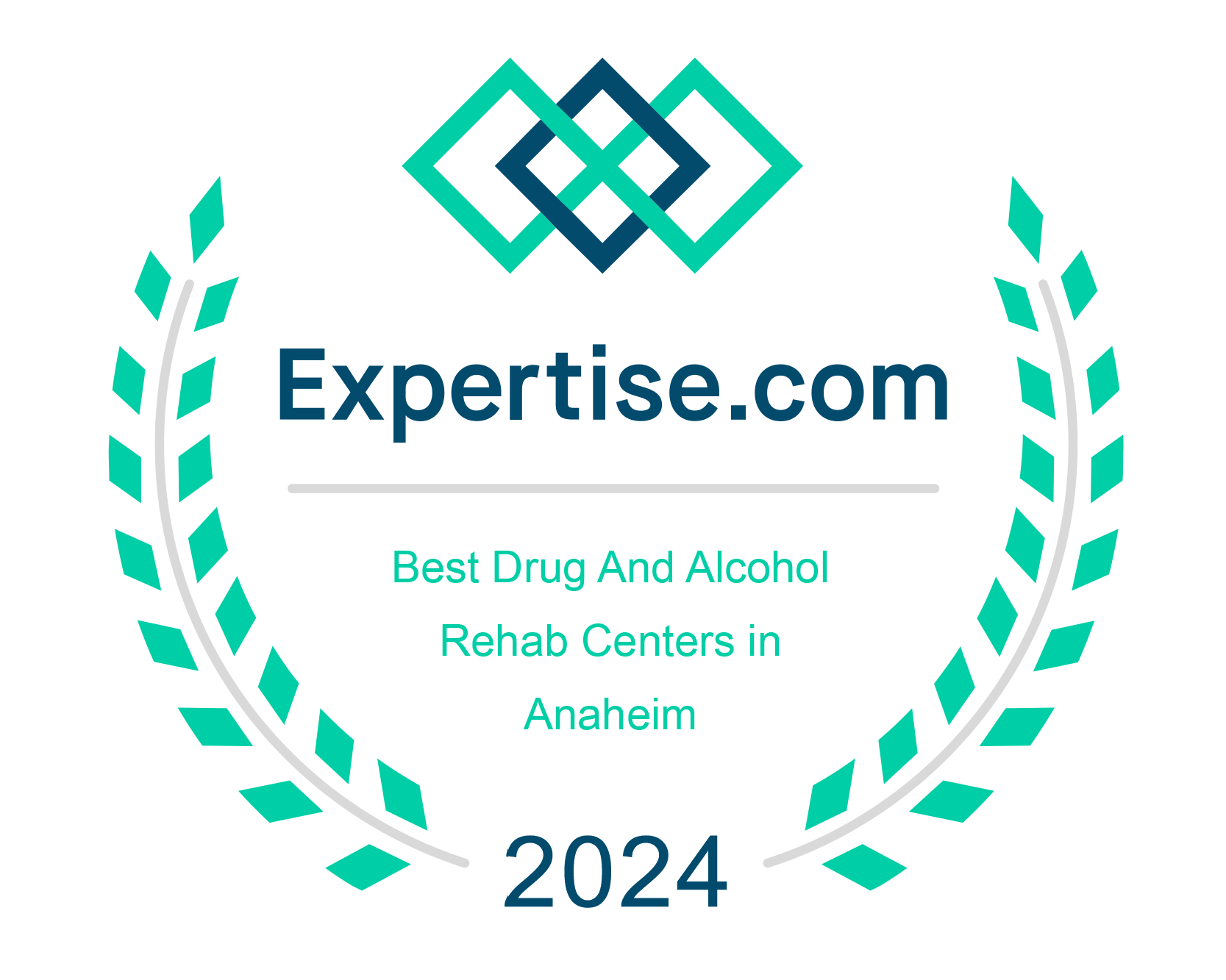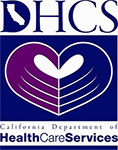Alcohol Treatment Program at Domus Retreat
Domus Retreat is a private drug and alcohol rehab center that offers a non-12-step individualized approach that combines detoxification with therapeutic services. Located in a secluded residential neighborhood, Domus Retreat provides a confidential and compassionate setting for those struggling with addiction.
Although there are many treatment options to help you recover from alcoholism, you need to find the one that is safe and effective for you.
Differences between a Traditional Alcohol Rehab and Domus Retreat Private Alcoholism Treatment Program
There are a few key differences between a traditional alcohol rehab and a private recovery center like Domus Retreat for the treatment of alcohol use. First and foremost, at Domus, we provide a medically assisted alcohol detox based on each individual’s health needs. Some people require a short hospitalization stay to safely manage withdrawal symptoms, while others can detox at Domus with supportive medications.
While alcoholism treatment can be a challenging and lengthy commitment, we hope to provide you with the best foot forward to recovery and embracing sobriety at Domus Retreat. Our alcohol treatment program is typically shorter in duration than traditional rehabs. At an alcohol rehab, patients are usually required to stay for an extended period of time – typically 30 days or more. Long-term treatment allows people to receive therapy while remaining away from their environment.
Domus Retreat treatment program, on the other hand, is a shorter process that usually lasts just 7 to 14 days with the option to extend. Once detoxed, we believe that most people can proceed with a productive life while receiving individualized therapy that focuses on helping patients change their lifestyles and develop healthy coping mechanisms to deal with stress and triggers. While detoxification generally focuses more on the physical aspects of addiction recovery, psychotherapy provides the ongoing support and guidance that many people need to sustain sobriety.
What is Alcoholism?
To find the best private alcohol detox treatment program, you first need to understand the condition of alcohol use disorder (AUD) thoroughly. AUD is a medical condition present when individual drinking habits cause distress or harm. Alcohol addiction can range from mild to severe, based on many factors. For example, these can include drinking excessively, not cutting down, and everything in between.
What is Alcohol Withdrawal
Alcohol withdrawal syndrome (AWS) is an uncomfortable set of symptoms that can occur following a decrease or a cessation of alcohol use after continuous and excessive consumption. Symptoms typically include anxiety, shakiness, and sweating; more severe ones might involve vomiting or fast heart rate with fever as well. More often than not, these get worse at first, around six hours after your last drink but start improving by the 24-hour mark, then weaken over time until seven days have passed since quitting cold turkey!
What Causes Alcohol Withdrawal
Alcohol is a central nervous system depressant. When consumed even in small amounts, it increases the number of neurotransmitters in our brain responsible for slowing down neuron-to-neuron communications and making us feel drowsier with each drink.
Over time, the CNS adjusts to the constant presence of alcohol. Your body works hard to keep your brain in a more awake state and your nerves communicating with one another. When there is a sudden drop in alcohol level, your brain remains in this nervous excitement state, which leads to withdrawal.
Contact Us
Alcohol Withdrawal Symptoms and Timeline
The severity of symptoms experienced after alcohol detox depends on the amount and duration that has been consumed in prior weeks or months. Withdrawals can be seen within two hours, but there’s no way to predict what may happen unless you’re prepared for it with pre-planned hospitalization if needed.
When people that suffer from alcoholism try to cut down, they often feel withdrawal symptoms. For instance, some common alcohol withdrawal symptoms are:
- insomnia
- shakiness
- irritability
- anxiety
- depression
- restlessness
- nausea
- seizures
If you have any of these symptoms, you should discuss your drinking habits with a knowledgeable physician. Therefore, one can guide you safely towards an alcohol treatment center that will work for you. The more symptoms you feel, the more urgent the need for professional help. Additionally, a doctor can comprehensively assess your medical history and withdrawal symptoms to guide you properly. If you are not sure you are suffering from alcoholism and would like an online evaluation of your condition, go to RETHINKING DRINKING. Although seeking a private consultation with a doctor is also the best treatment option, you can also start an online assessment.
Alcoholism is a medical condition that affects many different organs and bodily functions. A medical condition needs to be treated by doctors, especially one that disrupts how the brain communicates with the rest of the body (pathways).
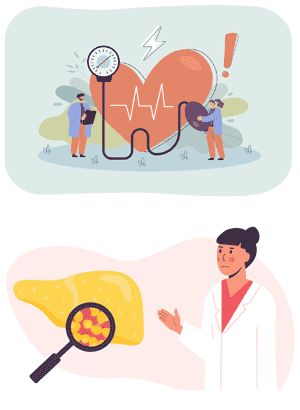
Alcoholism is a medical condition that affects many different organs and bodily functions.
These interferences directly affect someone’s mood and behavior, making it difficult to think clearly or behave normally. Continuous drinking also causes direct damage to essential organs such as the heart, liver, and pancreas.
Common Health Risks Related to Alcohol Addiction:
- Cardiomyopathy
- Irregular heartbeat
- Stroke
- High blood pressure
- Fatty liver
- Hepatitis
- Fibrosis
- Cirrhosis
- Pancreatitis
As shown above, alcoholism is a medical condition with serious health risks. Therefore, detoxification in a medical environment is always the best and safest treatment option.
Call now to speak confidentially with an addiction expert.
Ultimately, treating alcoholism is the best and wisest investment you can make. It will improve your life and the lives of those around you. Take the first step today!Call 1-866-713-3869
Choosing the Right Alcoholism Treatment Program
Choosing to get help for alcoholism is one of the most significant decisions one can make in their lifetime. Before selecting an alcoholism treatment center near you or one that a friend heard about, you should understand each program’s different services. For instance, is the program focusing on “addiction” or the individual? Are there pre-set treatment protocols regardless of the patient’s unique needs? How much is medical assistance immediately available? Let’s start from the beginning.
How to Identify an Alcohol Use Disorder?
Before seeking an alcohol treatment program, one must recognize an issue. Furthermore, the desire to quit drinking and the will to live life on life’s terms must be present.
Acceptance of having a drinking problem and needing professional help is usually one of the biggest challenges for abusing alcohol. Moreover, roughly 95% of people struggling with alcohol abuse in the USA do not feel they need professional help for their condition. First, because of the shame, and secondly, because of the inability to process information accurately.
How to Help Someone with an Alcohol Addiction?
Discussions about treatment and support options are usually much more successful when it comes from a place of love and compassion.
Furthermore, extensive knowledge of alcoholism and available treatment options is crucial to convincing a loved one to get help.
Here are some warning signs of alcoholism to look for:
- Binge drinking
- Radical mood changes
- Excuses for poor performance at work or school
- Neglecting responsibilities
- Denial of excessive drinking
- Aggressiveness
- Decreased interest in gatherings that exclude alcohol
- Defensiveness
The Three Phases of an Alcohol Treatment Program
Alcohol Detoxification
Although a safe and successful detox is a necessary first step toward treating alcoholism, it is rarely enough to help a person maintain sobriety. Alcohol treatment should involve a combination of therapeutic interventions designed to help someone safely get through a withdrawal while identifying emotional issues that could lead to a relapse.
Before entering a detoxification program, patients should fill out a preliminary intake. This intake should collect information regarding the patient’s history of alcohol use, previous withdrawal attempts, or rehab center experiences. The information should also contain medical and psychiatric history in order to the best treatment approach.
Those at risk of severe, life-threatening withdrawal symptoms should undergo detoxification in a hospital under strict medical supervision. At a hospital, patients have immediate access to several specialists to supervise, assist and manage the detoxification.
Other inpatient options include residential treatment, where withdrawals are managed with oral medications such as benzodiazepines to help reduce the severity of withdrawal symptoms and prevent the progression of potentially serious and fatal consequences. Anticonvulsants are also commonly used to reduce the possibility of convulsions, a dangerous and common occurrence during alcohol withdrawal. Additionally, antipsychotics and muscle relaxants are also given to patients to manage agitation, hallucinations, and delirium during alcohol withdrawal.
Alcohol Detox Timeline
Alcohol withdrawal symptoms, severity, and length vary from person to person, and you may need hospital treatment.
Withdrawal symptoms may start 5 to 10 hours after your last drink: You may experience:
- tremors (shaking)
- an increase or decrease in blood pressure
- quick breathing
- sweating, vomiting
- irritability
- trouble sleeping
- anxiety
- rapid pulse.
These symptoms typically peak within 24 to 48 hours.
12 to 24 hours: Some people may have hallucinations that can last up to 2 days or sometimes longer.
24 to 48 hours: There is a risk of withdrawal-related seizures.
Three days to a week: It is vital to be aware of a severe alcohol withdrawal symptom called delirium tremens. DT can require hospitalization and lead to dehydration, rapid heartbeat, high blood pressure, and even reduced blood flow to the brain. Symptoms of DT can include confusion, loss of consciousness, angry or nervous behavior, hallucinations, soaking sweats, and disturbed sleep. According to Harvard Medical School, delirium tremens happens in only about 5% of people who go through alcohol withdrawal, but it is fatal to up to 1 in 20 people who develop it.
Getting treatment at an inpatient facility, especially a medical one, dramatically improves your chances of safe and successful detoxification.
Common Medications Used During Alcohol Detox
Fortunately, many FDA-approved medications are safe and effective in getting people through alcohol withdrawals comfortably and safely. When it comes to detoxing from alcohol, there are a variety of medications that can be used. Supportive medications help ease the symptoms of withdrawal and make the detox process more comfortable and much safer for the individual. There are many types of supportive medications, and each individual should be put on a protocol specific to their health needs. Here are some of the most common supportive medications used in alcohol detox.
- Acamprosate: One of three medications approved by the FDA to treat alcohol use disorder. The medication reacts with the brain’s neurotransmitter systems reducing the brain’s dependence on alcohol.
- Clonidine and propranolol: Antiadrenergic drugs that inhibit epinephrine and norepinephrine signals. These medications are often used to detoxify several substances, including alcohol, opiates, and benzodiazepines.
- Benzodiazepines: Benzodiazepines are also known as tranquilizers, mainly used for sedating effects. Most common benzos are Ativan (lorazepam), Xanax, diazepam, Librium and Valium. This class of drugs is widely used to manage withdrawal symptoms of several substances, including alcohol. However, benzodiazepines are highly addicting and should be closely monitored.
- Disulfiram: Disulfiram is a medication that hinders how the body breaks down alcohol. It is manufactured and designed to produce a negative and/or unpleasant physical effect when combined with alcohol, commonly known as Antabuse.
Alcohol Detox Recovery
After alcohol detox, you will begin a regulation phase because the body gradually acclimates to the absence of alcohol. Also, you might feel emotionally raw or hypersensitive to any stressors. Hence, it’s important to spend a few days in a safe environment while giving yourself time to ease back into the swing of things. Once the acute withdrawal is behind you, a transitional phase begins. After detox, you will be able to move forward with other treatments and therapies.
Having adequate and around-the-clock professional support is critical to sustaining sobriety throughout this phase. Overcoming alcoholism is a physical and emotional process requiring patience, compassion, and guidance.
At Domus Retreat, people have the peace of their private rooms and a team of fully supportive and caring staff. Also, therapeutic services are available while the doctor prescribes supportive medications for further comfort. Therapy is individualized, and so is every step of the WAISMANN TREATMENT™ for alcohol dependence. Domus may also help alcohol users learn how to overcome triggers, the importance of healthy habits, and what to do in the event of a relapse.
Individual Therapeutic Support
Having a psychotherapist helping you handle urges and identifying triggers can be one of the essential supports necessary to maintain sobriety. A good therapist can also teach you new coping skills for everyday situations. There are no exact answers to how one should react in a particular circumstance, but learning to respond effectively can make all the difference in the world.
When alcoholism is left untreated, it can trigger a wide range of additional problems. These can include health, financial, relationship problems, and even professional issues. Don’t wait anymore because your life is worth fighting for. Contact an alcohol treatment expert now for the best detox program available. Above all, the Waismann Method and Domus Retreat teams are here to put together a comprehensive protocol for those in need of detox and medical stabilization. Treatment plans are individualized to provide the safest and most comfortable detoxification, plus the best chance for long-lasting sobriety.


